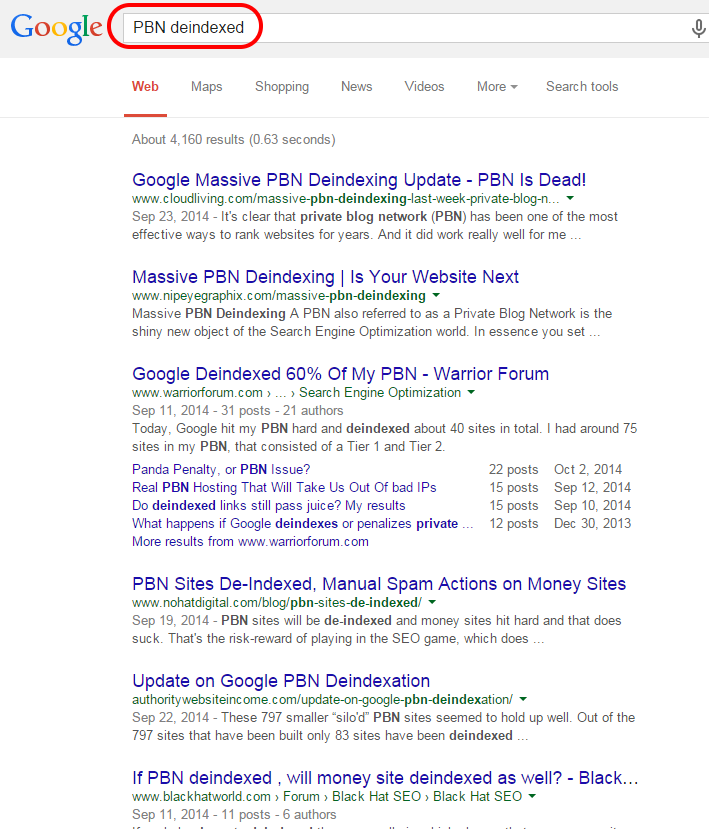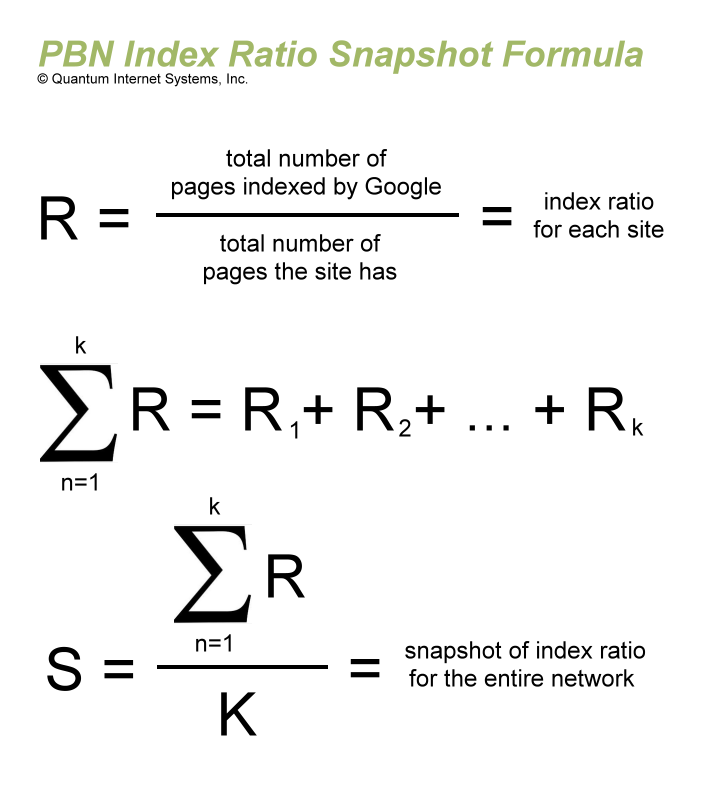
If you have been watching SEO industry news lately, you'll notice that Google has de-indexed over 90% of the PBNs worldwide recently and just released Penguin 3.0. PBN stands for private blog network. Most internet marketers and SEO companies have been using PBNs to rank various keywords with great success until recently when Google decided to de-index the sites. De-indexed site means Google has removed the site from their database entirely. In other words, Google has killed the site.
PBN De-indexing Issue
Go to Google and type in "PBN deindexed." You'll find countless number of webmasters declaring PBN is dead.

Fortunately, none of our blog sites have been de-indexed. We attribute this to our dynamic content engine. We were diligent with replacing the older content with quality content on a daily basis. Although we felt we have Google-proofed the content, we weren't able to tell the health of our entire network. In order to measure the state of our blog network's health, we had to develop a formula in order to measure how we stand in the eyes of Google. Simply acquiring high pagerank site doesn't mean you are succeeding in SEO. It just means you have high PR sites. This is a false metric every SEO marketer relies on.

Ever since we heard the news about PBN being de-indexed by Google a couples of months ago, we began keeping track of each of our site's index ratio. Here are some interesting facts we've discovered. We've been hosting 60% of the blog sites on various SEO hosting in order to acquire variety of IPs and about 40% on main stream hosting such as GoDaddy, Hostgator, and Rackspace. The index snapshot trend showed that the sites which were on SEO hosting were losing index count while the sites that are on non-SEO hosting were growing.
We have a theory on this. Since most SEO marketers host their PBNs on SEO hosts, de-indexed PBNs will affect other sites on the same IPs. Some time ago, Google has warned against being in a bad neighborhood.
Our Solution Going Forward
We are currently retiring many sites which were on SEO hosts and adding new sites on different hosts. For each site we remove, we are adding two sites to makeup for the loss of links. You may see wild ranking fluctuations for a couple of months because of our effort. This is a necessary step in order for us to Google-proof our network. By adding the sites on main stream hosts, we expect the sites to get better index ratio since the sites will be blending with other business sites on the same IPs.
Once we reach a certain number of sites, we are planning to retire 10% of the lowest performing sites monthly and replace them with other aged domains. We believe this process will filter out the losers and keep the winners. Simply by the process of elimination, we can always expect to have stronger sites in our network.
Penguin 3.0 and Its Effect
On top of everything else, Google has released Penguin 3.0 on October 17th. We initially saw a massive ranking fluctuation throughout the network but most came back to its normal pattern. We did however notice an obvious pattern. The sites which had SEO structured pages, local citations and press releases were not affected.
Please observe these recommendations as a way to Google-proof sites in the future:
1} Make sure the site has enough content and create SEO-structured pages. Be sure to have the meta information optimized for the keyword clout. Please do not target all your links to the homepage only. Be sure to target links to the relevant page within the site. If you don't have a relevant page and its content, please create one.
2} Start creating local citations via local directory sites if you are targeting local keywords. Google's quality guideline specifically mentions Google picks up local relevancy signal from local business directory sites. Be sure to use tier 2 links as they do work.
3} Use press release to create authority links. Be sure to include various naked URLs within the body of text. Create tier 2 links to the published press release pages.
Conclusion
Right preparation is the name of the game. We all know that rankings will only get tougher in the future. All we can do is make sure we are covering all the SEO signals.
|
|
|
|